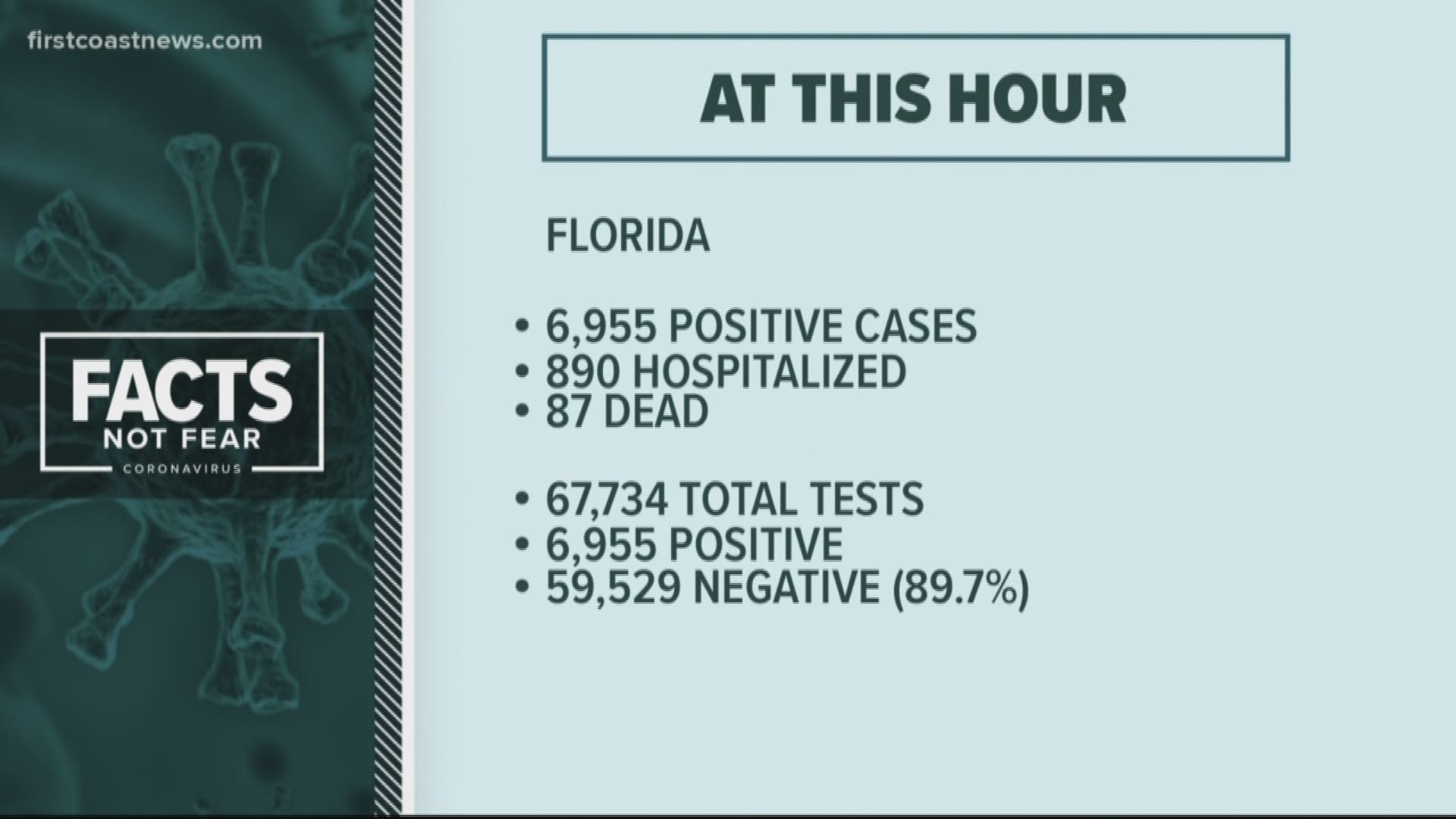Florida Gov. Ron DeSantis announced Wednesday that he will issue a statewide stay-at-home order to combat the spread of coronavirus.
The order goes into effect at 12:01 a.m. April 3. According to CDC data, Florida ranks sixth in the nation for positive COVID-19 cases.
DeSantis announced Wednesday the executive order limiting social interactions between Floridians for the next 30 days.
The Executive Order directs Floridians to "limit movement outside of the home" unless it is for an essential service, purpose or activity. The Department of Homeland Security has outlined the jobs that fall under "essential services".
DeSantis said it made sense to "make this move now," despite many areas of Florida still having low infection rates. His order comes at a time when President Donald Trump recently extended the social distancing guidelines for another 30 days and Jacksonville Mayor Lenny Curry issued a local 'safer at home' order.
DeSantis said his team continues to focus on the "hot spots" in the state. Broward and Miami-Dade counties carry half of the coronavirus cases for the state. He said this was expected with the amount of international travel throughout southern Florida.
They are focusing efforts on dealing with incoming cruises to southern Florida. They will accept any Floridians on board, but he believes the majority of passengers are "foreign nationals". DeSantis said he has spoken with President Trump about this issue and they are working on a solution.
DeSantis said he not in control of the ports, but the respective counties are consulting with their ports.
"Our administration has seen the cruise ships take up a lot of our resources and we want resources for folks here in southern Florida where we have the most problems with COVID 19," said DeSantis. "I think there will probably be some more developments on that today."
DeSantis said they now know there will be federal relief to help alleviate the impact on the economy, but they were looking for additional ways to help offer economic opportunity. DeSantis said he has one idea that can help with that. In his time traveling from county to county, DeSantis said he noticed how empty the roads were around the state. To take advantage of the unprecedented lack of traffic, he asked the Secretary of Transportation to accelerate more than $2 million worth of construction projects.
"We can make progress on key projects," said DeSantis.
He is "green lighting" several massive road projects in major cities, such as Tampa, Miami and Orlando to finish the projects weeks in advance while there is an opportunity to have minimal impact on drivers.
As far as testing goes, he said they've conducted approximately 64,000 tests so far. At some point, they hope to be able to test one out of every 200 people in order to get a better idea of where and how the virus is moving throughout communities.
DeSantis reiterated his previous guidance to anyone 65 years and older and anyone who may be immunocompromised to stay home and avoid contact with anyone who could be infected with the virus since their health consequences are more grave.
He said the "good news" is that the virus is skewing to more younger people now instead of impacting primarily older people who are at more risk of experiencing fatal complications.
He said they continue to be in high demand of masks.
"As soon as we get them they go right out the door," said DeSantis.
He said they are in need of millions of masks for healthcare workers, patients and those with immunocompromised conditions.
"The health outcomes for those groups are much worse if they contract the virus than any other group," he said.
In addition to masks, they are still in need of more testing kits. He said they continue to keep an eye on hospital bed space daily.
DeSantis said they can't know for sure how these measures will work "because it's never been tried on American society before", but he said they are on the front lines figuring it out.
Earlier Wednesday, Jacksonville Mayor Lenny Curry issued a Safer at Home order and instructed all nonessential businesses in Duval County to close on Friday.
His move brings the county in line with several others in Florida, including Broward, Monroe, Palm Beach and Miami Dade, and 42 states that have shut down nonessential businesses to slow the spread of the deadly coronavirus pandemic.
As of Wednesday, 445 cases of the coronavirus have been reported across the First Coast, according to numbers combined from both states' departments of health.

